-
Kidney Stones 101
Kidney stones occur when certain minerals build up and clump together in your kidneys. They are extremely painful, and in some cases, they may require surgery. It’s important to see your urologist as soon as you notice any symptoms that could indicate that you might have a kidney stone.
Watch this video to learn more about how kidney stones form and what you can do about them. Some kidney stones are small enough to pass on their own, but your urologist may suggest laser treatments or surgery for larger ones.
Urology Associates, P.C. offers comprehensive urology services for kidney stones, UTIs, sexual dysfunction, and much more. To make an appointment with a urologist in Nashville, please call (855) 901-1338.
-
What Happens if You Have Elevated PSA Levels?

PSA refers to prostate-specific antigen. Testing for this protein that is produced by the prostate is often done as a screening test for disorders of the prostate, including prostate cancer. PSA tests are often done by primary care physicians in the course of a routine physical. If your levels are high, your primary care doctor may refer you to a urologist.
It is important to note that elevated PSA levels are not always indicative of prostate cancer, but they are usually an indicator that you may need further testing. If you have elevated PSA levels, your urologist may recommend that you undergo a prostate biopsy to determine if you have any cancerous cells. The results of those tests will be used to diagnose prostate cancer or decide if you need more testing to determine if you have another prostate disorder.
If you are concerned about prostate health, make an appointment with a urologist at Urology Associates, P.C. For more information about our urologists and cancer treatments in Nashville, call (855) 901-1338.
-
What Causes Chronic Testicular Pain?

Chronic testicular pain—or CTP—is a serious condition that is often misunderstood. It affects thousands of men and can be debilitating, and yet, many men don’t know that it exists. Ongoing testicular pain without an explanation isn’t normal and should always be addressed with a urologist.
CTP can have a number of different causes. Trauma, infection, surgery, and kidney stones can all cause CTP, as can hernias and torsion. In rare cases, a tumor is to blame. Blockages, varicoceles, and hydroceles may also cause pain. In about a quarter of cases, the cause cannot be determined. Fortunately, your urologist has several treatments that can put an end to the discomfort, including surgery and medications.
At Urology Associates, P.C., we offer comprehensive care for a range of urological and sexual health concerns for both male and female patients. Schedule a consultation with a urologist in Nashville by calling (855) 901-1338.
-
What Foods Can Exacerbate Your OAB Symptoms?
If you have overactive bladder or OAB, learning how to control your symptoms is an important part of managing your condition. Your urologist can offer advice that will help. You may also want to consider avoiding the foods mentioned in this video.
Spicy foods can irritate the bladder and make OAB symptoms worse, as can any food or drink that acts as a diuretic. This includes cranberry juice and drinks with caffeine. Keep track of your symptoms and your diet to find any links between what you are eating and drinking and your symptoms.
Don’t let OAB control your life. The urologists in Nashville at Urology Associates, P.C. can help you find a treatment that works for you. Make an appointment today by calling (855) 901-1338.
-
Treating Recurring UTIs
Urinary tract infections, or UTIs, can happen to anyone, but when they recur, it’s important to see a urologist to pinpoint the cause and find the right UTI treatment. This video explains more about recurrent UTIs in women, who is most likely to get them, and what can be done to treat them.
Recurring UTIs may occur when the initial treatment was not effective. Typically, over-the-counter medications will not clear up an infection completely. In some cases, bladder stones can contribute to recurring UTIs as well.
Urology Associates, P.C. can help you get the right UTI treatment to put recurrent infections behind you. Make an appointment with a urologist in Nashville by calling (855) 901-1338.
-
Exploring the Link Between Diabetes and Kidney Stones
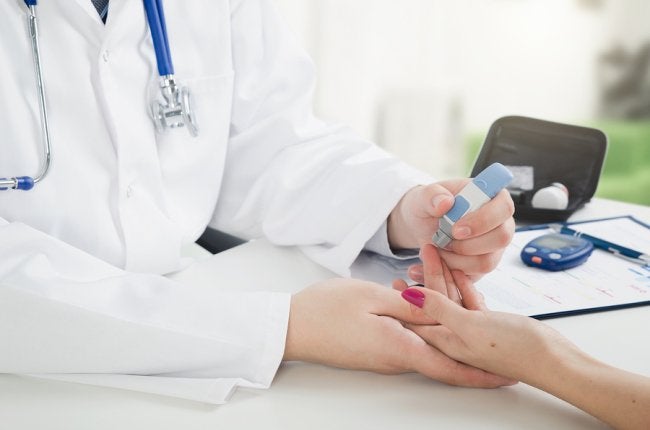
It is well-established that diabetes can increase the risk of kidney failure, particularly when it is poorly controlled. However, does the disease also increase the risk of kidney stones ? Here is what you need to know about the connection between diabetes and kidney stones and when you should see a urologist about your symptoms.
What are kidney stones?
Kidney stones are hard, stone-like formations of excessive calcium oxalate, struvite, uric acid, or cysteine. These substances can band together inside of your kidneys and form stones that range in size from minute to large and obstructive. When stones form, they eventually must pass out of your body through your urinary tract. Small stones can pass through your system with few, if any, symptoms. Large stones can be excruciatingly painful to pass and may get stuck in your urinary tract, where they can block the release of urine and trigger infections.
How does diabetes increase the risk of kidney stones?
Diabetes can increase the acidity of your urine. If your blood glucose levels are high, the acidity in your blood increases, which in turn causes the acid levels in your urine to increase. Acidic urine increases the risk of kidney stones. Following your diabetes care plan closely in order to control blood glucose and drinking plenty of water every day can help to reduce the risk.
When should you see a urologist for kidney stones?
See a urologist as soon as possible if you have symptoms of a kidney stone. These include nausea, vomiting, back pain, abdominal pain, and blood in the urine. If your stone is small, you may be able to pass it by increasing your water intake and using over-the-counter pain medicines. For large stones, your urologist may recommend procedures to break up the stone or surgical removal.
Urology Associates, P.C. provides treatment for a wide range of conditions, from UITs to kidney stones and bladder cancer. If you think you could have a kidney stone in Nashville, make an appointment by calling (855) 901-1338.
-
Spotlight on the Symptoms of Testicular Cancer
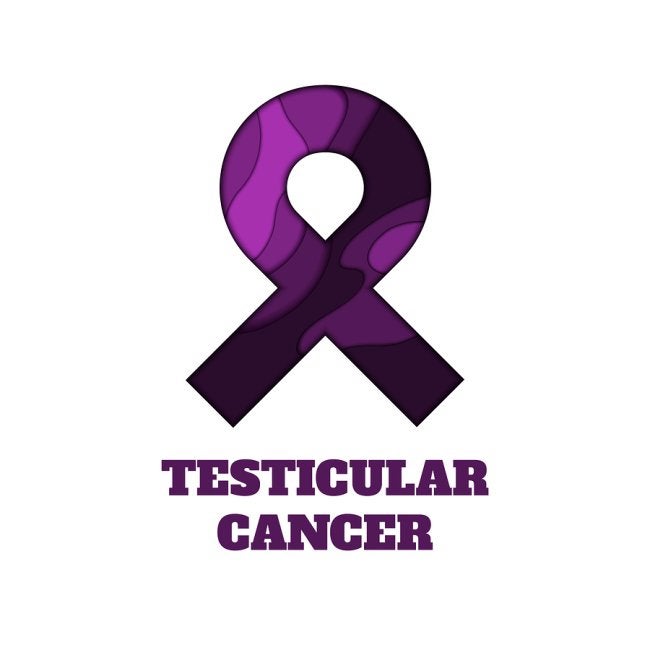 Testicular cancer is relatively uncommon, so men are often unaware of the symptoms. Unlike many kinds of cancer, about half of all cases of testicular cancer occur in young men between the ages of 20 and 34, though it can affect men at any stage in their lives, including in infancy. Typically, testicular cancer can be cured in its early stages, so it’s important to see a urologist if you think you could be experiencing any of these testicular cancer symptoms.
Testicular cancer is relatively uncommon, so men are often unaware of the symptoms. Unlike many kinds of cancer, about half of all cases of testicular cancer occur in young men between the ages of 20 and 34, though it can affect men at any stage in their lives, including in infancy. Typically, testicular cancer can be cured in its early stages, so it’s important to see a urologist if you think you could be experiencing any of these testicular cancer symptoms. Painless Lump
The most common indicator of testicular cancer is the appearance of a painless lump on a testicle. Occasionally, the lump may become tender or painful, but in the vast majority of cases, it is not. When you do experience pain with testicular cancer, it is more likely to be in the lower belly or in the entire scrotum rather than just at the site of the lump. It is often described as a deep ache or a feeling of heaviness.
Testicular Swelling
Some men with testicular cancer notice that one of their testicles has become larger or swollen. Although it’s natural for men to have testicles that are different sizes, with testicular cancer, an existing difference in size may become more pronounced. This can happen with or without the presence of a lump.
Breast Growth
Testicular cancer can lead to a hormonal imbalance that causes breast growth or tenderness in men. These hormonal changes can also result in a loss of sex drive. Pre-pubescent boys who develop testicular cancer may experience more pronounced hormonal symptoms, including the sudden deepening of the voice or facial hair growth.
The symptoms of testicular cancer can also be associated with a number of other conditions, so let a urologist at Urology Associates, P.C. make an accurate diagnosis, so you can get the appropriate treatment. For a diagnosis and testicular cancer treatment in Nashville, call (855) 901-1338.
-
What You Need to Know About Circumcision in Adulthood
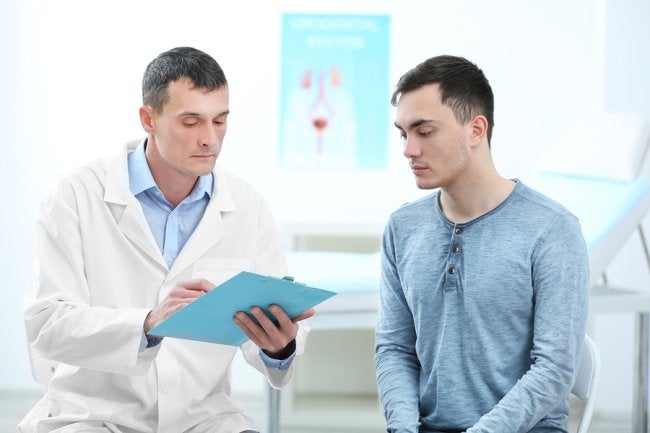
Circumcision, a procedure in which the foreskin of the penis is removed, is performed on about 65% of newborn boys in the U.S. Although circumcision is embraced for religious or cultural reasons, it is not medically necessary. Neither systemic nor sexual health is compromised by forgoing circumcision in the majority of cases, as long as proper hygiene practices are followed.
However, some uncircumcised men reach adulthood and decide that they would prefer to be circumcised. Generally, urologists recommend against having a circumcision performed during adulthood, unless there is a health problem. Some men have difficulty with recurring infections despite practicing good hygiene. Other men have difficulties with foreskin retraction. In these cases, a urologist can perform circumcision surgery to reverse the issues.
To discuss your options for circumcision in adulthood , schedule a consultation at Urology Associates, P.C. To make an appointment with a urologist in Nashville, please call (855) 901-1338.
-
Defining Lithotripsy
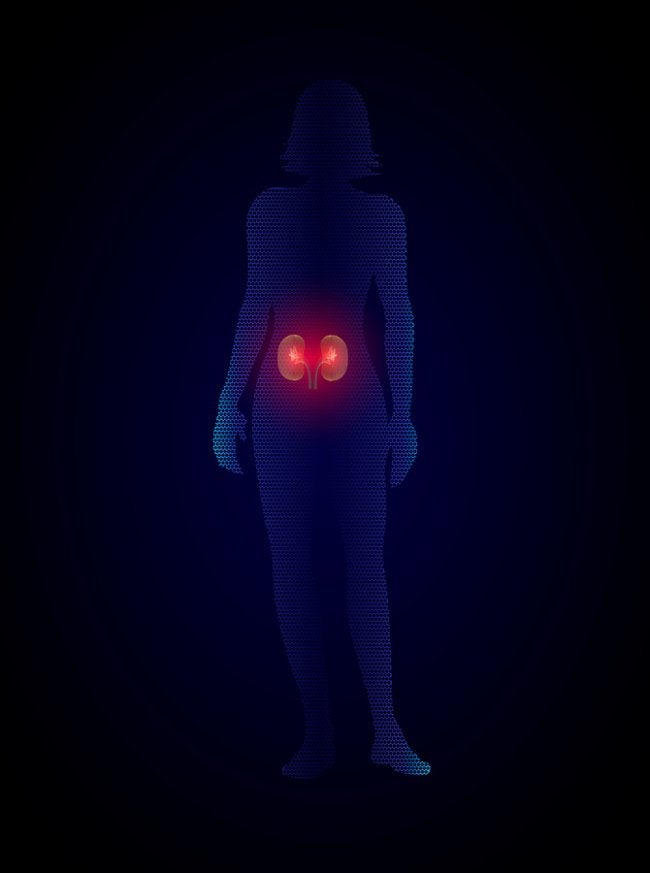
Not every medical procedure involves surgical incisions. Lithotripsy is a high-tech way to break up kidney stones. Your urologist may recommend lithotripsy if you have stones that are too large to pass, or if you have an anatomical abnormality that will make it difficult to pass the stones. Although electro-shockwave lithotripsy is not surgery, you will be placed under general anesthesia for the procedure.
Once you’re asleep, your urologist will use specialized equipment to direct high-energy shock waves through your body. These shock waves break up the stones into very tiny pieces. These pieces could be as small as a grain of sand. The entire treatment typically takes less than an hour. After the procedure, you’ll be advised to drink plenty of water to help the tiny bits flush out of your body with your urine. Lithotripsy is generally safe, but there are inherent risks with every medical procedure. Talk to your doctor about these risks before deciding whether to have lithotripsy.
Lithotripsy is one of the many advanced treatments we offer here at Urology Associates, P.C. If you’ve been told you may have kidney stones and you live in Middle Tennessee, give us a call at (615) 250-9200 to request our next available appointment.
-
Living with Kidney Cysts
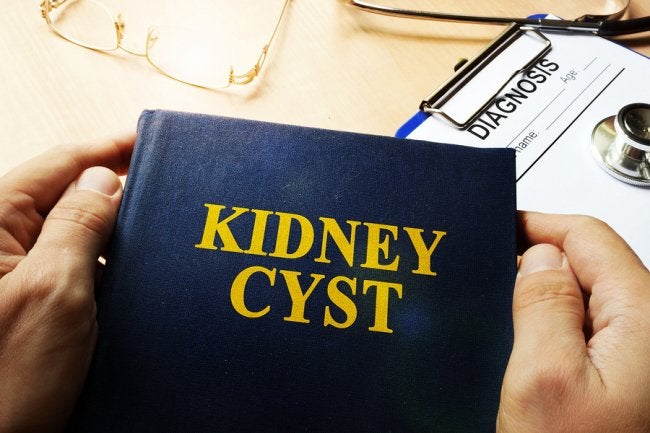
Cysts are noncancerous, fluid-filled sacs. They can develop in many different places in your body, and they aren’t always harmful. However, cysts in the kidneys can be dangerous. If you experience any possible symptoms of kidney cysts, or if your family doctor diagnoses you with polycystic kidney disease, you’ll need to work with a urologist to learn how to reduce your risk of complications.
Understanding Kidney Cysts
Kidney cysts can develop in people as they grow older. In many cases, they remain too small to cause any problems, and it’s possible to have a cyst or two without even knowing it. It isn’t quite known exactly why older adults are susceptible to kidney cysts , but some urologists suspect that it’s because the surface of the kidneys weaken later in life. Other people develop kidney cysts because of an inherited condition called polycystic kidney disease (PKD). Although the severity of this disease can vary from patient to patient, it’s possible for it to lead to severe complications, including kidney failure.
Identifying the Signs and Symptoms
Polycystic kidney disease usually begins causing symptoms after age 30 or 40. Cysts that develop in people without PKD are typically not diagnosed in patients younger than 50. Kidney cysts can cause these symptoms:
- Frequent urination
- Pain in the back or belly
- Pain in the side between the hip and ribs
- Fever
- Dark urine
- Bloody urine
In addition, people with PKD may develop these symptoms and complications:
- Extremely high blood pressure that causes a headache
- Chest pain
- Fluttering in the chest
- Frequent kidney and urinary tract infections
- Increased abdominal size
- Feeling of fullness in the abdomen
- Kidney stones
- Kidney failure
Exploring Your Treatment Options
If your kidney cysts aren’t caused by a disease, and they’re too small to cause symptoms, you might not need any treatment. Otherwise, your urologist may recommend surgical removal of the cyst. If you do have PKD, your treatment plan will depend on the complications you have. You may need medications to control high blood pressure, antibiotics to treat bladder or kidney infections, or dialysis to treat kidney failure.
Patients in Nashville with urologic health issues will find the thoughtful medical guidance and compassionate care they need at Urology Associates, P.C. We are a full-service urology clinic that provides cutting-edge treatments and comprehensive support for our patients. Schedule your consultation with one of our board certified urologists today by calling (615) 250-9200.
Recent Posts
categories
- Uncategorized
- Bladder Cancer
- Women's Sexual Health
- MonaLisa Touch
- Urology
- Urologist
- Erectile Dysfunction
- Kidney Cancer
- Incontinence
- Prostate
- MonaLisa Touch Laser Treatment
- Kidney Stones
- Urinary Tract Infections
- Event
- Sexual Dysfunction
- Testicular Cancer
- Prostate Cancer
- Urology Surgery Center
- urinary incontinence
- vaginismus
- noncoital pain disorder
- Hypoactive Sexual Desire Disorder
- Infographic
- provenge
- Xofigo
- robotic surgery
- hormone replacement
- diabetes
- renal cell carcinoma
- pelvic pain
- hematuria
- sexual health
- chronic testicular pain
- premature ejaculation
- Men's Health Clinic
- Dr. Melvin Seard
- Interstitial Cystitis
- vasectomy
- overactive bladder
- vaginal atrophy
- nocturia
- bladder infections
- urethral strictures
- Acute Epididymitis
- low sex drive
- circumcision
- pelvic floor dysfunction
- Peyronie's Disease
- prostatitis
- female sexual dysfunction
- varicocele
- difficult urination
- low libido
- PSA levels
- male fertility
- penile prosthesis
- prostatic intraepithelial neoplasia
- male infertility
- estrogen levels
- nurse navigator
- stress urinary incontinence
- vaginal yeast infection
- elevated psa
- painful sex
- adult circumcision
- epididymitis
- OAB
- kidney infection
- penile cancer
- pelvic organ prolapse
- Vasectomy Reversal
- bone health
- cystectomies
- clinical trials
- bloody urine
- Advanced Therapeutic Center
- WISH MedSpa
- neurogenic bladder
- WISH Team
- prostate biopsies
- BPH
- fecal incontinence
- lithotripsy
- osteoporosis
- kidney cysts
